- Home
- Nancy Buckingham
The Other Cathy Page 8
The Other Cathy Read online
Page 8
Matthew, she noted covertly in the mirror, had turned away from Rubens’s amorous revels and was looking at the back of her head. Blanche was glad she had taken time to rearrange her hair.
‘Surely such a match isn’t seriously considered?’ he said. ‘Dr Mottram seems pleasant enough, but rather colourless, I thought. If Emma is the sort of girl you say, with a strong mind of her own, then she would look for some challenge in a man.’
Blanche twisted so that she could look up at him.
‘My dear Matt, it’s not as if Emma is in any position to pick and choose. She has a little money from her father, but a woman needs something more than a small dowry to attract a desirable husband. Everything is against the girl, not only her difficult temperament, but also her appearance.’
‘What do you consider is wrong with her appearance?’
Blanche gave a rippling laugh, ‘Why, she’s like all the Hardaker women. Not the least bit feminine. She’s altogether too tall and big – and that determined stride of hers! Good-ness, you should rather ask me what is right with the girl’s appearance.’
‘And yet, you know,’ Matthew said reflectively, ‘in Emma these things seem to add up to something that makes for a pleasing unity. She carries her height with dignity, and her determined stride seems at one with her strong character.’
There was a lengthy silence. Then Blanche exclaimed lightly, ‘Heavens above, why are we discussing Emma when we have so much else to talk about? Do come and sit down, Matt, and tell me about your plans.’
He now took the hint, and sat beside her upon the velvet sofa. ‘I cannot tell you about my plans, Blanche, because they are not yet formed. My future depends on how successful I am in establishing my innocence. I am determined upon it.’
It was time, Blanche knew, to talk of the events that had so cataclysmically changed Matthew’s life fifteen years ago. Till now they had skirted round this delicate, dangerous subject, but it could no longer be avoided. His manner had been unbelievably friendly in the circumstances, but if she hoped for a real closeness between them again – and looking at him, so masculine and forceful in his well cut tweed coat and narrow American trousers, the idea caused her pulse to quicken – then she must be prepared to talk openly; to somehow convince him that she had not betrayed him as, undoubtedly, he must believe.
She took a steadying breath and turned to him, her glance downcast. ‘You cannot conceive how distraught I was that you should have been so cruelly and unjustly punished, my dearest. I have suffered dreadfully all this long time, thinking of you constantly and imagining what you must be enduring.’ She sighed, a hand to her breast. ‘How thankful I am that everything has turned out so well for you in the end – that the years of hardship and suffering were followed by such good fortune, so that you were able to return home a wealthy man.’
“The price I paid for my good fortune was far too high, Blanche.’ He paused, his face dark with memories. ‘Did it never occur to you to intervene on my behalf? It lay in your power to prevent me being falsely condemned for a crime I did not commit.’
She hung her head, and her lovely golden eyes brimmed with tears.
‘You wouldn’t be so severe with me if only you would try to understand. At first, I could not believe there was any real danger of your being convicted. It was too monstrous that you of all people, dear kind gentle Matt, should be found guilty of such a ghastly crime. Then later, when things began to look so black for you, my heart was torn in two and I became desperate. If I could have convinced myself that my intervention might have saved you, I wouldn’t have hesitated. But I knew it would not help. My only achievement would have been to destroy myself, also.’
‘You were at my trial. I saw you there,’ he said accusingly. ‘You sat unprotesting while the prosecution bludgeoned me with questions, flinging at my head what seemed to be the most damning pieces of evidence; my threats to be even with Hugh Hardaker, the discovery of my muffler at the scene of the crime. And finally, they demanded that I account for my movements on that fateful evening, treating it as conclusive proof of my guilt when I kept silent and refused to reply. Yet you, Blanche – you alone in that crowded courtroom – knew where I was that night. You knew, with utter certainty, that I could not have killed Hugh Hardaker.’
She stretched out a hand to him in a quick, beseeching gesture; then wavered, her fingertips resting upon the velvet pile of the sofa.
‘You cannot know how deeply I esteemed you for your silence, my dearest one. For your nobility in preserving my honour. I longed to stand up and shout defiantly for all the world to hear that you were innocent, because at the time when the crime was committed you were with me, in the gazebo, lying in my arms. But I ask you, I beg you, to consider the inevitable outcome of such a confession. Can you imagine with what savage joy the lawyers would have pounced? I, the respected wife of William Hardaker, infatuated with a mere youth several years my junior? How gleefully they would have described our illicit amour, our love-nest in a garden bower, making it all sound sordid and ugly. And to what avail, my darling Matt, to what avail? Just consider! If the court accepted the fact that we were lovers, they would also know that I would willingly perjure myself to save you -of course a woman will lie to save the man she adores. My testimony would have been dismissed out of hand, and I would have been sucked down into the maelstrom with you.’
When Matthew made no comment, she hurried on, ‘I implore you to try and see it from my point of view. If I could have saved you, if I had been certain of saving you, I would not have hesitated, whatever the cost to myself. Even though it would have ruined my reputation and put my marriage in jeopardy. But as it was ... Have you no conception what the condemnation of society means to a woman? The great crime for us, Matt, is not an illicit liaison in itself, but in being found out and publicly exposed. Even those whose own lives are far from unblemished would have been quick to shun me, to point the finger of scorn at me.’
For several long moments they looked searchingly into one another’s eyes. At last Matthew said, ‘Yes, I can understand how it must have appeared to you, Blanche.’
Her smile came quickly, a flooding of relief. ‘My dearest Matt, I knew I could rely on you to be understanding. You were always so splendid, so noble. Oh, how I wept for you, and wept for myself, night after lonely night.’
‘Yet it cannot have been long after my trial that you conceived the first of your two children,’ he reminded her cruelly.
She drew back as if he had struck her.
‘Oh Matt, are you suggesting that I should have denied my husband the marriage bed?’ she reproached him. ‘It would have been foolish to risk arousing his suspicions, but you must surely know that his embraces meant nothing to me. You were the only man I ever truly loved, Matt,’
‘I was just a boy then,’ he pointed out. ‘A callow, impetuous youth who had the temerity to love you. To you, I must have seemed very gauche and immature.’
‘No, never that, my darling! Despite your youth, I could recognise your many fine qualities. And have I not been proved right? Now, no longer a boy but in the prime of manhood, you have come back to Bythorpe the equal of those who would have belittled you before. Yes, and more than their equal! Oh Matt, do you remember how it used to be, the bliss of those hours we spent together in each other’s arms? I have never forgotten you, my darling, not for a single instant. I feared I would never see you again; but now you are here, and I can scarcely believe it.’
She leaned towards him impulsively, her eyes bright with tears. Matthew was held by the intensity of her gaze, sensing the yearning within her. Then, slowly, he reached out and took her slender white hand in his, raising it to his lips.
‘Blanche, I —’
The door burst open and he drew back quickly as Blanche’s daughter came skipping into the room. She was a pale pretty child wearing a light blue frock that was frilled and flounced, her fair hair gathered back with a wide blue ribbon.
‘I have finished
my picture, mama,’ she cried. ‘Do come and see it,’
Blanche, flustered, reproved her daughter gently. ‘Priscilla darling, did Bertha not tell you that I had a visitor? Well, never mind. Now that you are here I will introduce you. This gentleman is Mr Sutcliffe, who has just come all the way from Australia. Isn’t that exciting?’ She turned to Matt with a smile that held a certain anxiety, ‘Is she not sweet? I should be quite lost without my darling little Priscilla.’
Matthew had risen to his feet and he bowed gravely to the child. She barely troubled to acknowledge the courtesy, but went at once to the plate of little cakes and selected a piece of iced shortbread.
‘I want you to come and see my painting, mama!’
‘Not just now, dearest, presently. Run along and ask Bertha to give you your tea in the parlour. Tell her Mama says you may have cream with your jelly today.’
Unwillingly, her lips pouting, the child withdrew. As the door closed with a thud, Blanche said apologetically, ‘Children can be such a trial! Not, of course, that my Priscilla is really any trouble. When you get to know her, I am sure you will find the dear child quite adorable.’
Matthew, still standing, nodded abstractedly. ‘Perhaps it was a mistake for me to call on you like this, alone. People might begin to talk.’
Her eyes clouded. ‘There is no harm in allowing it to be known that we like one another’s company. Now that I am a widow, there is no longer the need for secrecy.’
‘I suppose not.’ With his forefinger Matthew traced the key motif on a brass oil lamp which stood upon the piano. ‘Did no one ever suspect our relationship? Did your husband have no inkling?’
‘Heavens, no, I made sure of that! There were times when I had a narrow escape, though. I remember once, when I returned to the house from the gazebo, I found William home already, much earlier than I had expected.’
‘What happened?’
She laughed. ‘I told him I had been down in the kitchen, having fancied some warm milk after I’d sent my maid to bed. And then again, on – on that night, it was a very near thing. Soon after you’d gone, Matt, I missed my silver bracelet, and I realised I must have left it in the gazebo. I went at once to fetch it, not wanting to risk having a servant find it there and become suspicious. Then returning across the lawn in the darkness, I almost bumped into William. He was wandering around the garden as though in a daze. I guessed he’d lost heavily at gambling and had taken a few too many drinks to console himself, which was fortunate for me on that occasion because I was able to slip into the house unnoticed. Mercifully, he decided to sleep in the dressing room that night and I saw nothing more of him until breakfast.’
‘How was his mood by then? Back to normal?’
She lifted her shoulders in a shrug. ‘What was normal with William? I’d grown so accustomed to his tempers and long sullen silences that I scarcely noticed them. Though he was a little abashed, I recall, when I pointed out that he must have come home without his chesterfield – in that freezing cold! He never did manage to discover where he’d left it and he had to purchase a new overcoat, which we could ill-afford.’
Matthew nodded absently, seeming deep in thought. Then, glancing at the clock on the mantel, he said, ‘I’ve stayed much longer than I intended. I must be going.’
‘When shall I see you again, Matt?’ she enquired eagerly.
‘I intend giving a dinner party at Oakroyd House as soon as the staff have settled in. For your family and a few other notables of the district. I trust you will come.’
‘I’d be delighted, naturally. But I meant a deux.’
‘Surely you still have a reputation to protect,’ Matthew threw back, his dark eyes glinting so that she couldn’t be sure how to interpret the remark. Then, after a slight pause, he went on seriously, ‘You and I know that I didn’t kill Hugh Hardaker. But we are not the only ones who know that. There is someone else – if that person still lives.’
‘You mean, whoever—?’
He nodded. ‘Who was it, Blanche? Whose hand struck down Hugh Hardaker that night? I mean to discover the truth before I am done.’
Chapter Seven
Emma had been obliged to contain her impatience until Monday afternoon, no chance occurring before this of a conversation with Aunt Chloe which would appear spontaneous and casual. Today her aunt had dispensed with her usual afternoon nap and was making preserves, one of the few tasks she refused to entrust to Mrs Hoad, who was consequently banished from her own kitchen. As Emma pushed open the door from the passage, Chloe looked round irritably.
‘Oh, it’s you! I thought it was one of the servants. I don’t like interruptions when I’m busy.’
‘I wondered if I might lend you a hand,’ said Emma placatingly. ‘Cathy is in the conservatory, asleep – I fear she needs more and more sleep these days – and I have nothing to do.’
‘There are innumerable occupations for a diligent young woman,’ Chloe retorted. ‘I am surprised you find yourself at a loss. However, now that you are here, you might as well help me prepare these blackcurrants.’
Adopting a suitably chastened air, Emma fetched an earthenware bowl from the potboard under the dresser and sat down opposite her aunt at the big scrubbed table. After working in silence for a few minutes, stripping the fruit from the stalks with a small silver fork, she ventured, ‘The dinner party last week wasn’t such an ordeal as I had anticipated. It passed off quite well, didn’t it?’
‘Hmph! That is a matter of opinion. Your Uncle Paget made a thorough exhibition of himself, and Blanche should have known better. Still, all things considered I suppose it might have been worse.’ Chloe gave her niece a glance of measured approval. ‘At any rate I was glad to see that you had decided to be sensible. Your Uncle Randolph has decreed that we are to accept Mr Sutcliffe within our visiting circle, so that is what we must do, regardless of personal feelings.’
Picking out some squashed currants and laying them aside on a separate dish gave Emma a moment to frame her words; even so, they came out clumsily.
‘Matthew Sutcliffe swears he is innocent – he swore it at his trial, I mean. Is it possible. Aunt Chloe, do you think?’
‘My dear child, don’t you know that most accused men deny their guilt? I have heard it remarked that our houses of correction are full of innocent men!’
Silence fell again. It was difficult for Emma to voice the question that burned like fire in her mind, but she would never rest until she knew the answer.
‘That story of Matthew Sutcliffe’s about his father being the real inventor of the Hardaker Condensing Engine, could there be any truth in it?’
Chloe’s fork rattled against the bowl. ‘Mercy above, Emma, do you disbelieve you own father? No finer man than Hugh ever lived, let me tell you that. How could you think he would demean himself by stealing from an employee? It is conceivable, perhaps, that Arnold Sutcliffe contributed a few of the minor details, but that was no more than his job. He could hardly expect special credit for doing what he was paid to do as overlooker at the mill.’
It was not an altogether satisfactory answer, Emma felt. Reproaching herself yet again for her disloyalty in harbouring the smallest doubt, she considered what she knew of her father, who had met his death when she was four years old. She remembered him dimly as tall and broad-shouldered, a typical Hardaker; so tall that Emma seemed almost to bump the ceiling when he lifted her up and twirled her round above his head, while she giggled and squealed in delicious fright. She had grown up with the mental picture of a kind, gentle and good man, honest to the core – that went without saying. But was there, perhaps, another side to the picture?
‘Mama talked about my father so little,’ she said at length, with a pensive sigh. ‘I suppose I should have asked her to tell me more.’
‘Your mother never really understood Hugh. I knew that from the start. I could have warned him. In fact, I did try to warn him the day their betrothal was announced, but he was too besotted with her to listen to reason
.’
‘Aunt Chloe! You have no right to speak of my mother in such terms.’
‘I am in the habit of speaking my mind, child, you should know that.’ Chloe’s face was unusually flushed and her fork prodded over-forcefully at the soft, ripe fruit. ‘I’ve said nothing that you could not have surmised for yourself. Your mother was always far too ready to indulge her own wishes.’
‘Are you trying to say that mama was selfish?’
‘I’m merely suggesting that she might, with advantage, have shown a little more consideration for others. Did you not feel it yourself on occasion? Bearing in mind that you’d lost your father at such a tender age, what was more natural than for you to turn with extra affection to those who had been closest to him, his brother and his sister? Yet how often were you permitted to visit us here at the Hall, except formally in your mother’s company? Her conduct caused me great distress, Emma, and you may as well know it.’
Emma checked the rejoinder that rose to her lips. Aunt Chloe, with no child of her own, had needed to bestow her devotion elsewhere. So perhaps she was over-ready to imagine herself slighted by mama; just as she stubbornly insisted that Aunt Henrietta had deliberately set Cathy against her. Yet, looking back, Emma now realised that she had really been aware all along of the conflict between her mother and Aunt Chloe. It was true that mama had refused most of the numerous invitations to Bracklegarth Hall, preferring their own quiet life in the small house in Pinfold Lane. And visits there by Aunt Chloe had never been truly welcomed. Later on, after mama’s death, when she had come to live at the Hall, Emma had felt smothered by the pampering affection of her aunt; her independent spirit had rebelled and there had been several stormy scenes between them! Eventually, she and Chloe had settled down to a peaceable relationship, but one which lacked any degree of warmth. Now, as usual when aunt and niece had a slight brush, the subject of dispute was hastily dropped. They spoke instead of the tartness of the blackcurrants, due no doubt to the lack of sunshine this summer, and agreed that the jam would need a little extra sugar above the recipe. When Emma thought sufficient time had elapsed she returned to the question, asking, as though idly, ‘What sort of man was Matthew Sutcliffe’s father? It must have been quite an achievement to rise from nothing and become overlooker at the mill.’

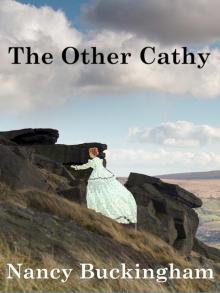 The Other Cathy
The Other Cathy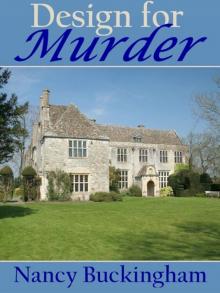 Design for Murder
Design for Murder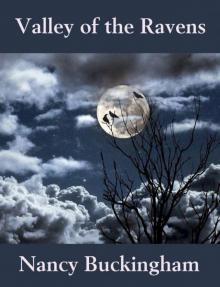 Valley of the Ravens
Valley of the Ravens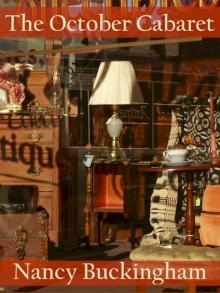 The October Cabaret
The October Cabaret Model Murder
Model Murder Murder in the Cotswolds
Murder in the Cotswolds Deadly Deceit
Deadly Deceit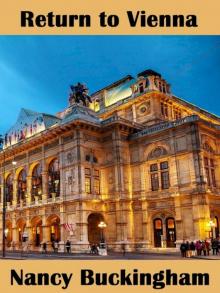 Return to Vienna
Return to Vienna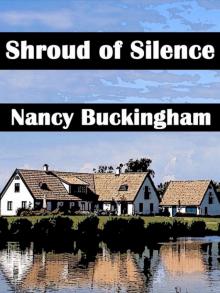 Shroud of Silence
Shroud of Silence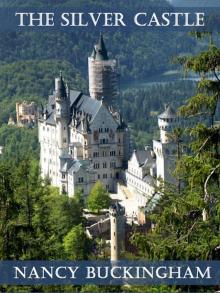 The Silver Castle
The Silver Castle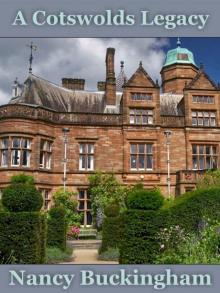 A Cotswolds Legacy
A Cotswolds Legacy Marianna
Marianna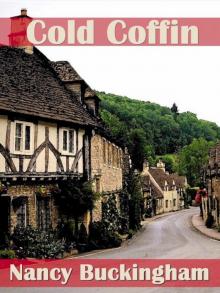 Cold Coffin
Cold Coffin Kiss of Hot Sun
Kiss of Hot Sun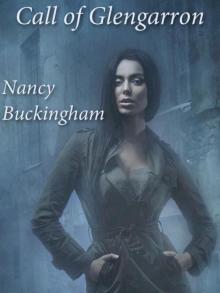 Call of Glengarron
Call of Glengarron Quest for Alexis
Quest for Alexis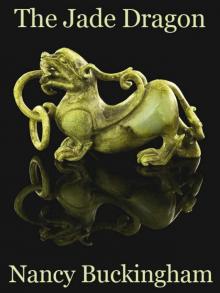 The Jade Dragon
The Jade Dragon